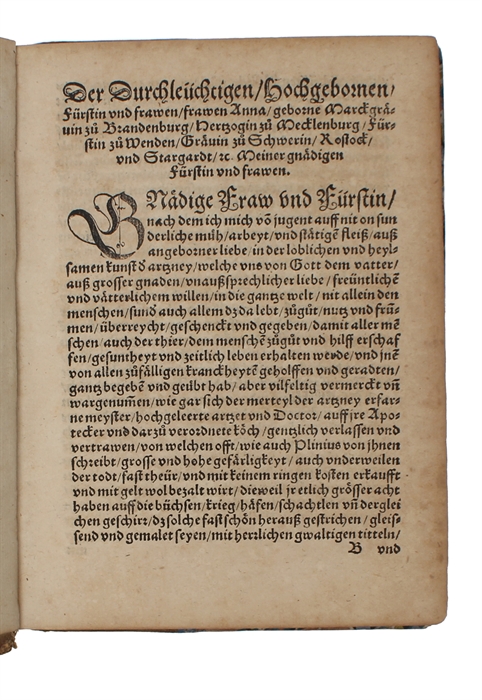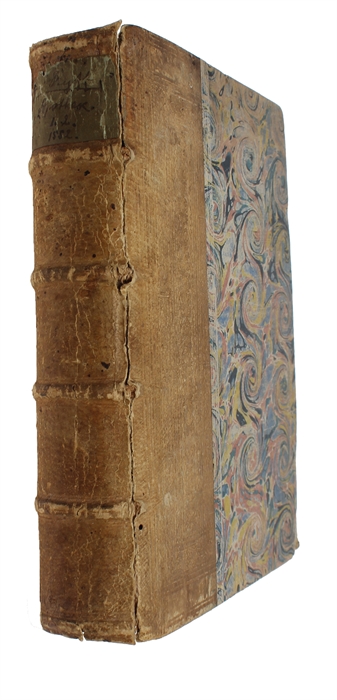RYFF, WALTHER.
Der erst theyl der kleinen Apoteck oder Confectbuechlins (+) Der ander theyl der kleinen Teutschen Apoteck.
Strassburg, Balthassar Beck, 1552.
4to. In contemporary blindstamped half pigskin-binding over wooden boards with later marbled paper covering the boards. Endpapers renewed. Upper part of spine with title paper-label. Wear to extremities and front board partly detached. Last blank leaf with annotations in contemporary hand. Internally fine and clean. (6), XCVIII, (7), (blank), (4), CLV, (8) ff. One woodcut illustration in text.
Rare later edition of Ryff’s first part of “Kleinen Apoteck” and second part of “kleinen Teutschen Apoteck” - his highly popular manual of domestic medicine and cookery. “Walther Hermann Ryff (c.1500-c.1548) was a German surgeon and author. While little is known about his life, he probably studied pharmacy in Basel. He served as the city apothecary in the northern German town of Güstrow, then moved on to Strasbourg, where he served as city physician from 1532-1540. He left Strasbourg in 1544 following a legal suit involving plagiarism – one of the defining features of his literary career – and went on to Frankfurt, Mainz, Nuremberg, and Kulmbach. He died in Würzburg.” (Bernard Becker Medical Library). Durling 4018
Ryff in general wrote for a lay audience and his texts were all published in German, rather than Latin. “Ryff had no scruples in appropriating material wherever he could find it. Ryff is known to as one of the most notorious plagiarists who robbed the works of others, and therefore brought on himself the wrath of his contemporaries who showed no mercy for his short comings, either as a man or as an author” (Hagelin, Materia Medica, p. 58). Versalius even called him “the Strasbourg plagiarist.”
What his contemporaries criticized him for eventually turned out to be the strength of his publications. He managed to popularize medical knowledge and make, what used to be an esoteric knowledge only available for the few, available to a broad audience. His ability to make medical knowledge available for the layman and the fact that he wrote in German later earned him flattering title of being the “Luther of Medicine”.
Not in Waller
Order-nr.: 60622



